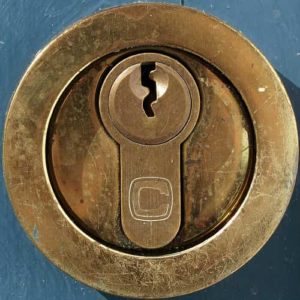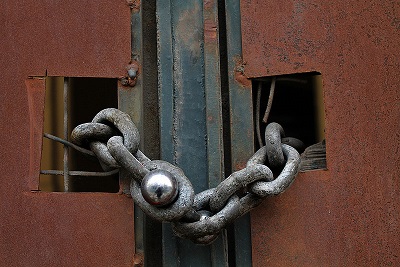Cylindrical locks are an affordable lock solution for many commercial applications. Installation is less labor-intensive than installing a mortise lock. Also, the locks are easily re-keyed or replaced when necessary, usually without needing to call a locksmith.
 Commercial cylindrical locks are available in a variety of finishes and standard duty, medium duty, and heavy duty construction.
Commercial cylindrical locks are available in a variety of finishes and standard duty, medium duty, and heavy duty construction.
Building and reliability are the main considerations when choosing cylindrical locks. Schlage and Falcon are two of the best-known lock manufacturers.
Consumers can always expect to get the finest quality locks when purchasing from one of these companies. In fact, it was Walter Schlage who invented the cylindrical lock in 1909.
Look for the following specifications when shopping for cylindrical locks:
- ANSI and BHMA certifications UL listed 5-pin or 6-pin tumblers Concealed mounting screws
- Options for electrical locking and unlocking
- Quality locks have been tested to last a long time. For example, the Schlage D-series and
- Falcon T-series meet or exceed the 800,000 cycle ANSI Grade 1 requirements. These locks
- are also constructed of either brass or cold formed steel and treated to withstand corrosion.
- Heavy-duty steel springs in the mechanism add to the durability of the locks.
The different construction specifications meet varying commercial building needs. Standard duty commercial locks are suitable for heavy duty residential use or light to medium duty commercial use, such as interior office doors.
Medium duty locks are designed for use in commercial exterior applications that don’t require rigorous security and for interior doors of medical offices, hotels, retail stores, public facilities, churches and apartment buildings.
Heavy-duty cylindrical locks provide security in exterior and interior applications for industrial facilities, schools, hospitals, offices, retail stores, government/public office buildings and factories.
Cylindrical locks are usually available in both lever or knob designs. Lever locks should meet ADA requirements. Additional options include special finishes to help users identify by touch that the lock leads to a space containing hazardous materials. The best locks include a feature that allows the exterior knob or lever to move freely even when locked; this helps prevent intruders from breaking the lock. When purchasing locks for fire doors, make sure the lock is rated for use on a fire door.
The best locks include a feature that allows the exterior knob or lever to move freely even when locked; this helps prevent intruders from breaking the lock. When purchasing locks for fire doors, make sure the lock is rated for use on a fire door.
For commercial installations, always buy commercial cylindrical locks from well-known companies such as Schlage and Falcon. The light duty often locks available from home improvement super centers won’t offer the security or durability required in commercial applications.
How to Choose the Right Commercial Locks
The exterior entrances to the building can be secured with a range of deadbolt locks. Security needs will determine whether to use standard or heavy duty lock construction. Standard duty commercial deadbolts work well for office buildings. Heavy duty commercial deadbolts provide the best security. You should look for lock construction that includes a concealed wood frame reinforcer that prevents kick-ins.

You’ll probably want to pair a cylindrical lock with a deadbolt to allow ease of entry. Your choices include lever style locks and knob locks. A heavy duty lever lock is suitable for hospitals, factories, and even schools. Buildings with less stringent security needs may opt for standard or medium duty lever locks. Some lever locks are also UL listed for use on 3-hour fire doors. Knobs are the traditional doorknob design. These are also available in medium and heavy duty designs. Knob locks are typically reserved for interior doors of commercial buildings
These are also available in medium and heavy duty designs. Knob locks are typically reserved for interior doors of commercial buildings
Interconnected locks are an attractive choice for exterior doors of offices, hotels and light-duty commercial buildings. These locks are called interconnected because the handicapped compliant handles unlatch both the handset and the deadbolt when it’s
These locks are called interconnected because the handicapped compliant handles unlatch both the handset and the deadbolt when it’s depressing.
The best interconnected locks have a reinforced deadbolt strike to prevent an intruder from kicking the door open.
Interior doors of the building can be secured with a mortise lock. These locks are both attractive and functional. Heavy duty mortise locks are dependable and designed to withstand high-usage and abuse.
This makes them ideal for hospitals and schools. When choosing mortise locks, look for models that include a free-wheeling lever that resists force when locked.
No matter what types of locks are required in a building, most manufacturers will offer a variety of finishes that can be matched across all styles.
This allows for a consistent aesthetic appeal throughout the building. Finishes typically include brass, bronze, and stainless steel. Expect to pay from $40 for a simple cylindrical lock up to $300 for the finest mortise locks.
